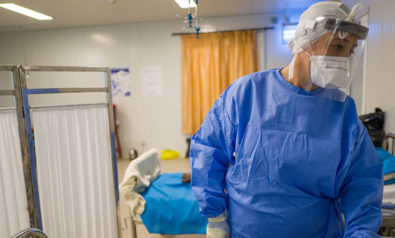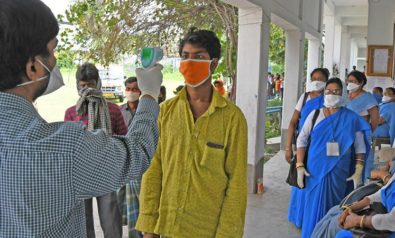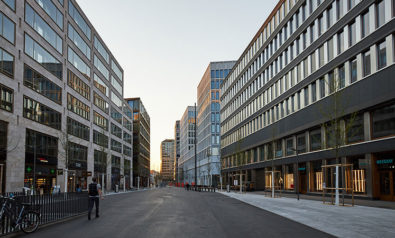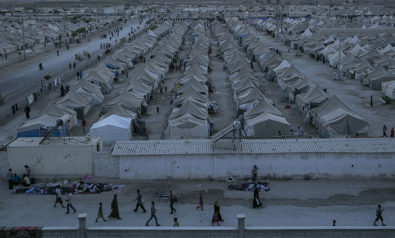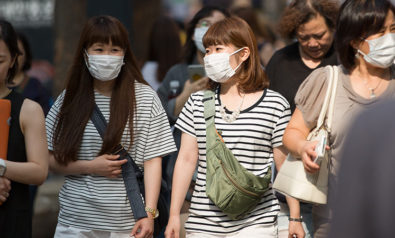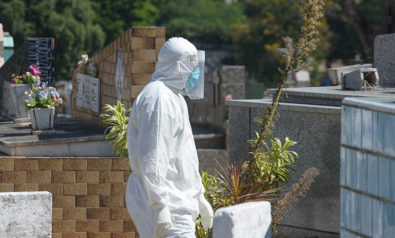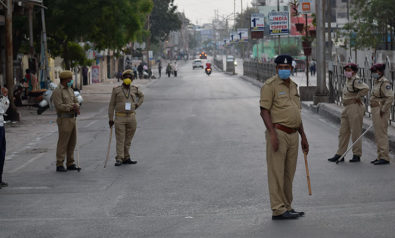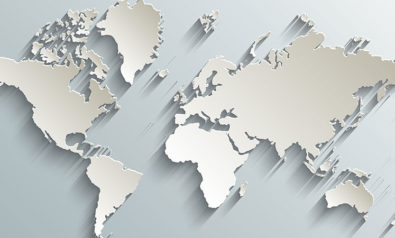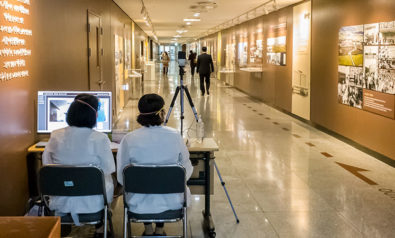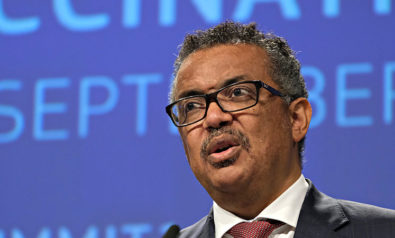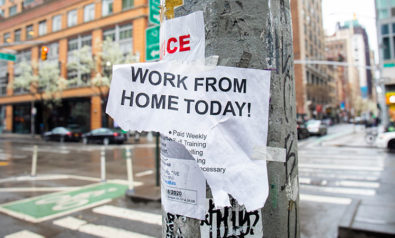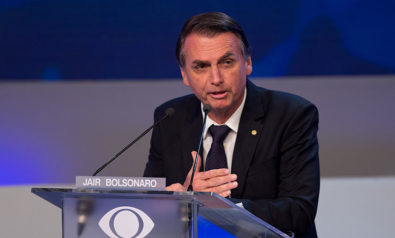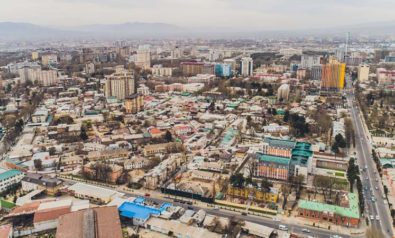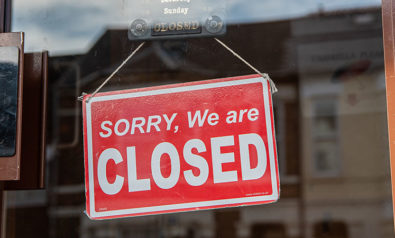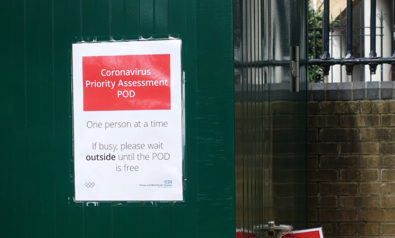Sweden has dealt with the global COVID-19 pandemic very differently from the other Nordic countries. All but Sweden are led by women. The female prime ministers in Denmark, Norway and Finland closed down their countries in the middle of March and have dealt with the pandemic in an open, inclusive and democratic way you would expect in more equal societies with universal welfare states and high levels of solidarity and social responsibility. It was, therefore, a surprise to many that Sweden’s leftist coalition took an authoritarian approach more suited to governments on the far right.
Prime Minister Stefan Löfven decided not to impose a lockdown but to simply advise the public on social distancing and to close high schools and universities. The Swedish government hoped that high levels of trust in politicians would be enough to make people behave responsibly, removing the need for emergency legislation. The strategy has certainly not been successful when it comes to saving lives: Sweden’s death rate per million for the past seven days has been higher than Belgium, the UK, Italy and Spain.
Has COVID-19 Launched a New Era of Deadly Pandemics?
Initially, it seemed like the Swedish government was trying to resist calls from the radical right to close borders, with the far-right Sweden Democrats (SD) trying to blame immigrants and refugees for the spreading pandemic. SD called for mass testing, while its members and local politicians were ridiculing the high proportion of deaths among Swedish Somalis.
The government’s approach soon started to look more like a laissez-faire strategy to achieve so-called “herd immunity” — the idea that allowing a high proportion of the population to catch the virus would lead to the building up of antibody resistance in wider society — and to minimize damage to the economy rather than to stave off racism and xenophobia. With a mortality rate of more than 10 times that of the Nordic neighbors and a third of nursing homes in Stockholm infected, many argue the price has been too high. Some scientists use words like “catastrophe” and a “massacre” to describe the impact of the government’s strategy.
Survival of the Fittest
Despite strategies taken by most political leaders globally and in neighboring countries, Löfven relies on advice from the Public Health Agency, led by the civil servant and state epidemiologist Anders Tegnell. Löfven, of the Social Democratic Party (SAP), leads a minority coalition with the Greens that needs support in parliament from the Center Party, the Liberals and the Left Party. Critics say the government thought it couldn’t stop the virus so it decided instead to let people die and “save” the economy.
The death toll in Sweden has been climbing rapidly and at a much sharper rate than in other Nordic countries. This is especially true among the elderly — the very group the government said it wanted to protect. The death rate in nursing homes has alarmed health workers who fear they are probably responsible for infecting the residents as they don’t self-isolate and don’t wear personal protective equipment. Health workers and scientists not only criticize the government’s strategy but also doubt they have enough expertise to understand how the virus spreads.
However, Tegnell hasn’t budged, stating as late as 18 May in an interview on BBC World Service’s “Hard Talk” that “in Sweden we don’t wear facemasks — in Sweden we stay at home when we are sick.” This is at odds with many other countries where the authorities have recognized that facemasks could limit the spread of the virus. It also seems obvious that volunteering to work from home is no option for many workers who are dependent on public transport where there is no policing of physical distancing.
Many inside Sweden are highly critical of the government’s strategy. On April 14, a letter signed by 22 leading scientists demanded that the politicians intervened to save lives where the Public Health Agency had failed. The experts are concerned about the lack of leadership as well as expertise. It is well known that many COVID-19 carriers are asymptomatic, which leads to rapid spread and poses danger to the elderly and those deemed extremely vulnerable due to preexisting conditions. The letter caused a storm, warning the death toll in Sweden would soon be comparable to Italy’s. Some of the experts have later accepted that assumption was a mistake and that one should compare with the other Nordic countries and try and find a dialogue and a solution rather than escalate the debate.
But this Darwinian survival of the fittest strategy has been popular. Löfven’s support in the polls has risen from 22.6% to nearly 28% in one month, whilst the Sweden Democrats, who polled at 30% in November and looked likely to become the biggest party in the country, are now down to 20.8%. It is interesting but not surprising that the increasingly neoliberal SAP should be adopting policies more fitting for those espousing radical-right ideology. The approach has paralyzed the SD, who are struggling for attention in the shadows of the government. As Lena Mellin points out in Aftonbladet, “The Sweden Democrats survive on dissatisfaction and distrust, that doesn’t work right now.”
Women Lead
As some of the international press has focused on successful strategies in countries led by women both on the left and the right, it is ironic that the only country in the Nordic region not led by a woman is Sweden. As many countries led by men are doing well in this pandemic, leadership styles probably have more to do with state feminism rather than gender. More equal societies are more likely to elect women leaders, and the Nordic countries are benefitting from that.
In Denmark, Mette Fredriksen took the lead, and others followed suit, with quarantine for people arriving from abroad, lockdown measures and testing. Fredriksen, from the Social Democratic Party, leads the minority government and relies on support from the other left-wing parties — Socialist People’s Party, the Red Green Alliance, and the Social-Liberal Party — to legislate.
Fredriksen’s firm handling of the crisis has saved lives and earned her a position in a league of other women leaders who have acting swiftly, responsibly, and with empathy and authority: Tsai Ing-wen in Taiwan, Jacinda Ardern in New Zealand and Angela Merkel in Germany. In Norway, Prime Minister Erna Solberg, from the Conservative Party-led coalition, also introduced quarantine measures, international and domestic travel bans, closed universities, schools, nurseries and nonessential shops as well as promptly introduced testing.
In Iceland, the government led by Katrin Jakobsdottir offers free coronavirus testing to everybody, and the proportion of people screened is five times that of South Korea, which is seen as an international success story in tackling this crisis. In Finland, Sanna Marin has engaged social media influencers to spread information about the pandemic and reaches people who don’t read the mainstream press. This intelligent approach, executed with empathy and clear communication, stands in stark contrast to those of US President Donald Trump and Brazil’s Jair Bolsonaro, who openly discriminate against women and minority politicians, and dismiss both science and expert advice on handling the pandemic.
Paid Off
Leaders in the Nordic countries disagree with the Swedish approach and are unwilling to risk lives. They have been very clear and honest in communicating with a diverse public about the approaches they have taken. The women have managed to do so in a non-authoritarian manner without falling into the trap of using the language of war. They have stressed that this pandemic is very dangerous and needs to be taken seriously, and that they understand it is difficult — especially for the children. Fredriksen and Solberg even hold press conferences for children where they can ask questions, and their answers are clear and reassuring.
The strategy seems to have paid off in both Norway and Denmark, with both countries starting to lift the lockdown. Norway reopened nurseries from April 20 and schools on May 4, while over the 1,630-kilometer-long border with Sweden, nurseries and primary schools have been open all along. The death toll in Sweden on May 21 stands at 3,831, compared to 234 in Norway. Norway has 5.5 million inhabitants and Sweden has 10.2 million. The difference is stark no matter how — and whom — you count.
To an outsider, it is difficult to understand why the Swedish government has taken such a brutal, neoliberal approach and seems to blatantly prioritize the economy over protecting people’s lives. Most of the Sweden Democrat’s criticism of the government comes across like the voice of reason. Demanding mass testing, a lockdown and compulsory facemasks for health workers is not easily identified as radical-right policy suggestions. Given that there is little clarity from the authorities when it comes to guidelines — which the SD keeps asking for — there does not seem to be a niche here for the far right to exploit.
The SD’s problem right now is that too many mainstream experts and politicians in Sweden and abroad, and even the World Health Organization, agree on the effectiveness of lockdown measures and mass testing. It will be interesting to see if the support for the SAP’s reactionary policy will continue and from where the opposition might emerge, if not from the radical right. The SAP’s approach has occupied and normalized a territory that has been at the core of radical-right ideology — immigration as well as fear and security politics — so for the SD to win back support it will have to move so far to the right that it would surely fall from the Overton window of what is acceptable in Sweden.
Like Margaret Thatcher’s 1978 comments that the British people fear they might be “rather swamped by people of a different culture,” the SAP has successfully managed to contain and manage xenophobic and authoritarian leanings, outbidding a radical right competitor with hard-right promises.
*[The Centre for Analysis of the Radical Right is a partner institution of Fair Observer. Correction: This article previously stated that Sweden’s total death rate per million was higher than Belgium, the UK, Italy and Spain. Updated on May 22, 2020, at 15:45 GMT.]
The views expressed in this article are the author’s own and do not necessarily reflect Fair Observer’s editorial policy.
Support Fair Observer
We rely on your support for our independence, diversity and quality.
For more than 10 years, Fair Observer has been free, fair and independent. No billionaire owns us, no advertisers control us. We are a reader-supported nonprofit. Unlike many other publications, we keep our content free for readers regardless of where they live or whether they can afford to pay. We have no paywalls and no ads.
In the post-truth era of fake news, echo chambers and filter bubbles, we publish a plurality of perspectives from around the world. Anyone can publish with us, but everyone goes through a rigorous editorial process. So, you get fact-checked, well-reasoned content instead of noise.
We publish 2,500+ voices from 90+ countries. We also conduct education and training programs
on subjects ranging from digital media and journalism to writing and critical thinking. This
doesn’t come cheap. Servers, editors, trainers and web developers cost
money.
Please consider supporting us on a regular basis as a recurring donor or a
sustaining member.
Will you support FO’s journalism?
We rely on your support for our independence, diversity and quality.



